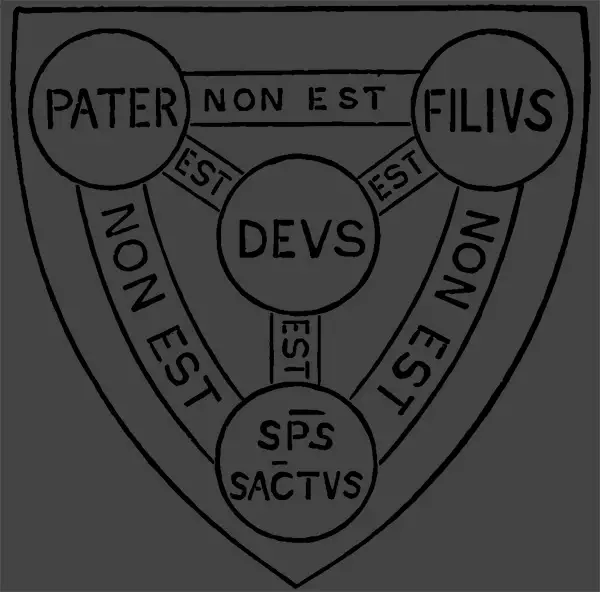The will of man and the will of God
In Christian doctrine, a distinction is often made between the human will, influenced by worldly desires and needs, and the divine will. Man is always faced with the choice to follow their own desires or align their life with the will of God. This dichotomy (referring to a clear division into two mutually exclusive or contrasting aspects, enabling a clear distinction between two different categories or concepts) is reflected in the distinction between the “old self” oriented towards the world and the “new self in Christ” that seeks to align with the will of God (cf. Ephesians 4:22-24).
Jesus as a role model
In Christian teaching, Jesus Christ is often portrayed as the perfect example of living in accordance with the will of God. This portrayal is particularly emphasized in the Gospels, where Jesus repeatedly highlights his deep connection to the Father and his alignment with His will.
A striking example of this can be found in the Gospel of John, where Jesus says in John 5:30:
“I can do nothing on my own. As I hear, I judge, and my judgment is just, because I seek not my own will but the will of him who sent me.”
These words express Jesus’s deep obedience and dedication to the divine will. He emphasizes here that his actions and judgments do not come from his own initiative but directly result from hearing and receiving divine guidance.
This statement is not only a demonstration of Jesus’s humility and dedication, but it also reveals a fundamental principle of the Christian attitude: following Christ means submitting one’s will to the divine will.
This principle is repeatedly emphasized throughout the New Testament, such as when Jesus says in Matthew 26:39 during his prayer in the Garden of Gethsemane:
“My Father, if it is possible, let this cup pass from me; yet not as I will, but as you will.”
These words in the Garden of Gethsemane depict the deep inner struggle of Jesus, where he nevertheless decides to prioritize the Father’s will over his own. They vividly illustrate the essence of Christian discipleship: surrendering one’s will to the divine plan, even in moments of greatest challenge and suffering.
The significance of this attitude of Jesus cannot be overestimated. It represents a central element of the Christian faith and is a crucial aspect for understanding Jesus’s mission and work. Through his example, Jesus teaches believers that true freedom and fulfillment can be found in aligning one’s will with the divine will.
The words of Jesus in John 5:30 and Matthew 26:39 represent a clear and direct call to believers to align their lives according to the example of Christ. By submitting their own will to the divine will, they follow the path that Jesus has set and thus attain a deeper connection to God.
The doctrine of the Trinity
The doctrine of the Trinity is a central dogma of the Christian faith that posits the existence of one God in three persons – Father, Son, and Holy Spirit. This doctrine is deeply rooted in Christian theology and is traditionally understood as an expression of the complex nature of God.
In John 5:30, Jesus says:
“I can do nothing on my own; as I hear, I judge, and my judgment is just, because I seek not my own will, but the will of him who sent me.”
Here, a clear distinction is made between the will of Jesus and the will of the Father. Jesus, appearing as the Son of God, emphasizes that his actions and judgments do not stem from his own will but directly result from the will of the Father.
Similarly, in Matthew 26:39 during Jesus’ prayer in the Garden of Gethsemane, a similar attitude is displayed:
“My Father, if it is possible, let this cup pass from me; yet not as I will, but as you will.”
These words reflect Jesus’s willingness to submit his own will to that of the Father, even in a situation of deepest suffering.
These Bible verses raise questions about the nature of the Trinity, especially regarding the relationship between Jesus (the Son) and the Father. While traditional Trinitarian doctrine postulates an essential unity within the Trinity, where Father, Son, and Holy Spirit are understood as distinct persons but one single being, the cited Bible verses suggest a functional distinction between the will of the Son and the Father. This perspective raises questions about the traditional interpretation of the Trinity and suggests an internal conflict within this doctrine.
The will of man and the will of God
The implications for Christian life that arise from considering the relationship between human will and divine will are profound, calling for a conscious decision and dedication. This challenge is clearly articulated in the Bible, especially in Romans 12:2:
“And do not be conformed to this world, but be transformed by the renewal of your mind, that you may discern what is the will of God, what is good and acceptable and perfect.”
This verse highlights that true change and renewal come through turning away from worldly values and turning towards divine principles. It is not just about an external adjustment, but about a fundamental renewal of thinking and inner attitude.
The call to “not be conformed to this world” implies actively resisting the prevailing tendencies of society, which are often characterized by self-centeredness, materialism, and short-term pleasures. Instead, a Christian should seek the will of God, which entails aligning with values such as love, mercy, justice, and humility.
This alignment with the will of God requires constantly questioning oneself and measuring all decisions and actions against the teachings and example of Jesus Christ. It is a process that requires both discipline and the grace of God to lead a life that reflects “what is good and acceptable and perfect.”
According to Romans 12:2, Christians should lead a life in accordance with the divine will. This requires a deep spiritual transformation that encompasses the heart and mind, manifesting in a lifestyle that differs from the prevailing patterns of the world and instead is grounded in the principles of faith and following Christ.
Conclusion
The relationship between the will of man and the will of God poses a fundamental challenge. This is particularly evident in the distinction between the “old self” and the “new self in Christ,” as described in Ephesians 4:22-24. Christians are called to align their lives not with worldly, but with divine principles.
Jesus Christ, as the perfect example of fulfilling the divine will, emphasizes in John 5:30 and Matthew 26:39 the importance of obedience to the Father’s will. His words and actions show that true devotion means submitting one’s will to God’s plan, even in deepest suffering.
These examples shed a critical light on the validity of the doctrine of the Trinity. While traditionally there is an assumption of essential unity within the Trinity, the texts suggest a functional distinction between the will of Jesus and the will of the Father.
For a consistently Christian life, the challenge arises to align decisions and actions consistently with the teachings of Christ, as outlined in Romans 12:2:
“And do not be conformed to this world, but be transformed by the renewal of your mind, that you may discern what is the will of God, what is good and acceptable and perfect.”
This implies a profound mental renewal that goes beyond mere external adjustment and necessitates a radical transformation of thinking and inner attitude.
The Christian faith requires deep reflection and a life in accordance with the divine will, guided by the example and teachings of Jesus Christ.


















